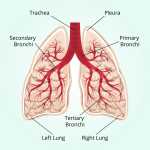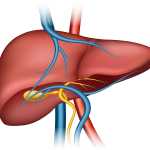Covid-19 after effects
In 2021, a good start was started. We all know that 2 vaccines already approved by the WHO and medical professionals and frontline workers started their work in India. The case count has dwindled, and the least new infection has been recorded in the past eight months in February. Things are slowly and affirmatively. It is hoped that the entire country will vaccinate the vaccine at the end of this year. Throughout 2020, we are all sad. Many restrictions, many plans were canceled; unemployed, and many people lost their loved ones. Today we are happy, because of vaccination. Many of you are wondering if you can get back to normal if you get corona vaccine treatment in India.

For some patients, survival of COVID-19 is only part of the success. Physicians are well aware of the effects of persistent viral infections, but the first few months of the pandemic are less of a sequela because they are devoted to preventing infections and understanding how to care for patients in hospitals. No attention has been paid. However, after the epidemic lasted for more than eight months, these issues were no longer ignored. Covid-19 is a virus that affects mainly the lungs, but it also affects the heart, kidney, and brain, and appears to increase long-term health problems and life-threatening complications.
After the corona vaccine, we can start our early life?
Most doctors will tell you that the world has switched forever. We will not get back to that good olden day. Don’t be afraid. The good news is that these vaccines are effective, and the time has come when we may all be protected from COVID. However, we still don’t know much about COVID and India’s coronavirus vaccine or any COVID vaccine related to this. Scientists and researchers do not have all the data needed.

Post covid syndromes that affect organs
According to WHO, post-covid infection symptoms are still not well understood, long term effects appear to be more likely to occur in people with certain risk factors such as high blood pressure and obesity.
However, so many people who got long-lasting symptoms have frequent risk factors. younger and healthier people can also be affected. The World Health Organization reported that in a telephone survey of adults with COVID symptoms, 20% of adults between 18 and 34 years old said the virus would have a long-lasting effect. It’s your duty to find Diagnostic Centres In Thrissur
Respiratory system
Some patients recovering from COVID-19 tend to complain of constant fatigue, shortness of breath, and the need to breathe deeply, making it difficult for them to complete even some routine tasks. This can be due to long-term damage to the alveoli and lung tissue. Scars that form in the lungs due to changes in inflammation during illness can cause long-term breathing problems.

Heart and blood vessels
It can be said that the effects of COVID on the heart and circulatory system can be life-threatening and difficult to treat, especially for patients already suffering from heart disease. Doctors have observed that even after a negative test for COVID-19, the patient still has chronic fatigue, abnormal heart rhythms, heart and chest pain, and persistent myocardial damage (as evidenced by imaging studies). This increases the risk of heart failure and other complications (such as cardiomyopathy). Find the Best Orthopedic Doctor in Thrissur and treat as soon as possible.
Another important observation made in COVID-19 patients is the formation of blood clots, while larger blood clots can directly lead to heart attacks and strokes, while smaller blood clots can spread to the liver, kidneys, etc.
Kidney issues
Another problem is low kidney function in hospitalized and even discharged patients. The presence of hypertension and diabetes further increases the risk of kidney failure after COVID.
Patients have low urine output, infrequent urination, and sometimes extensive damage requiring dialysis. Kidney damage has been seen even in young patients or patients with no history of kidney disease, largely due to direct attack by the virus, low blood oxygen levels, cytokine storms, and blood clots that can block the kidneys.
Liver function level

Liver damage is the result of damage to liver tissue during virus replication and infection. Elevated levels of liver enzymes and abnormal liver function have been observed in patients receiving moderate to severe COVID-19. A retrospective study in China found that more than a third of hospitalized COVID-19 patients had an abnormal liver function and the proportion of men was even higher
It has been observed that in some patients, liver function tests cannot return to normal levels even after recovery. This can also be attributed to cytokine storms, low oxygen levels associated with pneumonia, and the side effects of medicines used to treat the disease.
It is necessary to note that many long-term effects of COVID-19 are still unknown and effective treatments are being studied. However, most patients recover quickly with no long-term effects, and many patients seem to gradually relieve these persistent symptoms. However, the increasing daily report of covid-19 repeats the importance of reducing its spread through the use of face masks, washing your hands, and taking alert of our health by getting medical test weekly. So covid survivors can check the organs to maintain a healthy body. Here at Tesla scans and Healthcare in Chalakudy is the digital diagnostic center in Kerala. Tesla scans consist of an MRI scan center, CT Scan Centre, and much more tests in the lab.